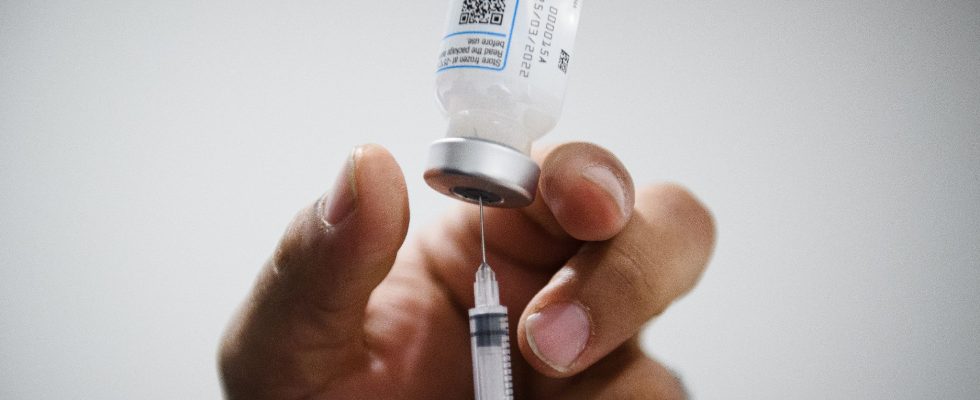For people at risk of developing a serious form of Covid, there is no discussion, not the slightest hesitation. A new injection, with a suitable vaccine, is essential. In all countries, all experts say the same thing: while the virus continues to circulate, vulnerable populations – immunocompromised, elderly, chronically ill or pregnant women – have every interest in protecting themselves. In these individuals with weakened immune defenses, the protection conferred by previous doses or by an infection tends to decrease more quickly over time. A new injection should bring it back up to speed, especially since the products being delivered promise to be effective against the variants in circulation: “We do not have clinical trial results, but we already have studies of immune response. On this basis and with the experience acquired, we believe that this vaccine will protect by 75% to 90% against serious forms”, indicates Brigitte Autran, president of the Committee for Monitoring and Anticipation of Health Risks (Covars ).
But what about those under 65 in good health? This year, in France, vaccination is officially open to all – last year, it was necessary to wait several weeks before the health authorities clarified this point. However, injections are only officially recommended for those most at risk. The UK and Germany are on the same line. The United States, on the contrary, recommends the injection to all subjects aged over six months, in other words to almost their entire population. Scientists appear to be divided on the strategy to adopt, and the youngest can legitimately wonder about the attitude to follow after October 2, when the campaign begins in France.
“We are no longer in the same situation as in 2020. We have all been infected or vaccinated, or both: as long as there is no major evolution of the virus, the probability of severe form among healthy people remains very limited”, notes Professor Jean-Daniel Lelièvre, head of the clinical immunology and infectious diseases department at the Henri Mondor hospital (AP-HP) in Créteil, and expert at the High Authority of Health . However, this specialist notes that there is nevertheless an individual benefit to vaccination, including in this public. “This will strengthen protection against serious forms even if they remain exceptional, and above all it will reduce the risk of being infected, probably around 35% to 50%,” confirms Brigitte Autran. Enough to avoid ending up at the bottom of your bed, or transmitting the virus to more fragile people if you have them around you. This effect will however be temporary, of the order of a few months.
A matter of personal evaluation
This also reduces the risk of developing long Covid. “The frequency of these prolonged post-infection symptoms seems to decrease over the waves, but that does not mean that it no longer exists: there may still be new affected patients,” indicates Brigitte Autran. If this question is still debated – a study on the health data of American veterans shows on the contrary that the risk increases with reinfections – it is however now well demonstrated that vaccination protects against long Covid. “By strengthening immune responses, it is likely that it prevents progression towards prolonged symptoms,” specifies the president of Covars.
Deciding to revaccinate – or not – therefore ultimately remains a matter of personal evaluation. But one thing is certain: receiving a new injection should not pose any particular problem. Vaccines remain very well tolerated and closely monitored. For a time, immunologists were concerned about a phenomenon called “immune imprinting”, which could over time undermine the effectiveness of future injections. “When we revaccinated with the spike of the original strain, we essentially recalled immunity against this strain and not so much against the new variants, including with bivalent vaccines (which included both the protein of the first virus and of a variant, Editor’s note). But the adapted vaccines no longer include the Wuhan virus, so this is clearly no longer the case”, assures Professor Lelièvre.
Under these conditions, why not recommend a new injection to all French people? In the United States, this is the option that was chosen because “the models predict a greater number of deaths and hospitalizations avoided with universal access”, recalls an article published in the journal Nature. But the American context is not the same, with in particular a strong rejection of vaccination in certain territories, where entire sections of the population remain to be convinced. In France, experts feared diluting the main message – the protection of individuals at risk – by calling on all French people to reach out again. “Moreover, it is obviously not the same thing to target limited groups or to organize a campaign for 60 million people,” recalls Professor Lelièvre. The collective benefit, in view of the costs, was therefore not there. But it should not be confused with the individual benefit, which remains.
